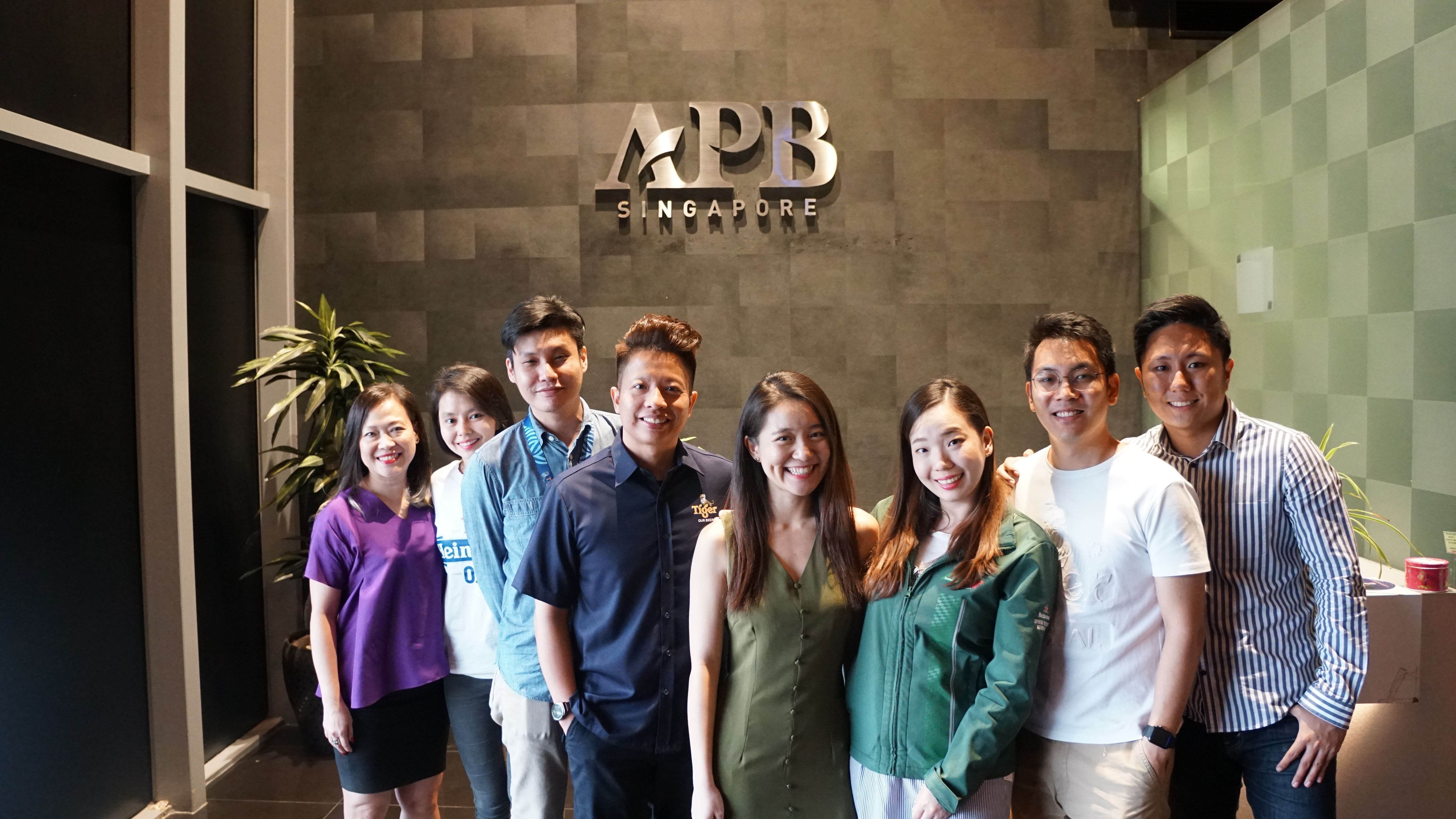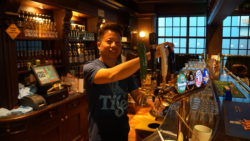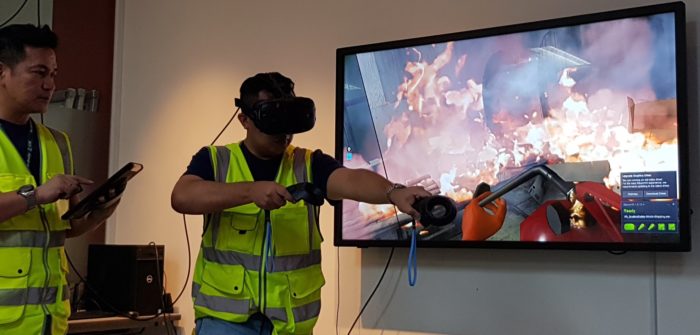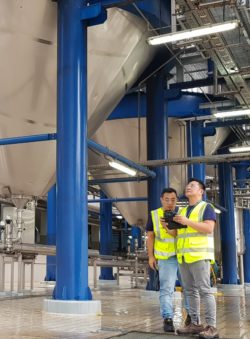Brewing up a digital and people-first culture at APB Singapore
- Daniel Teo

How many people can say that they have free beer at work? The employees at Asia Pacific Breweries (APB) Singapore certainly can. But it’s not just the free beer after office hours at its famous Tiger Tavern that is helping the company engage its people, but the digital and people-first culture that flows through the only commercial brewery in Singapore.
Owned by The HEINEKEN Company, APB Singapore was founded as Malayan Breweries Limited (MBL) in 1931. And for an organisation that has gone through nearly 90 years of changes, one thing remains at the heart of the company – its people. Having said that, there’s no doubt what needed to be changed – that is to digitalise and leverage on technology to ensure the company keeps pace and stays relevant, both commercially and in its people strategy.

Driving the digital transformation at a company with such a long history and getting its employees on board is always going to be a challenge. And the secret behind APB Singapore’s success is the ability to keep its people at its core in their digital transformation journey.
Speaking exclusively to HRM Asia over a beer (disclaimer: zero-alcohol), Shaun Ee, Human Resources (HR) Director of APB Singapore said, “People are at the heart of the company. So any digital solutions that we embark on must have a purpose to ensure that there is more productivity at work and the people are able to do their jobs with an eye on the future as we move towards a digital era in which we continue to stay relevant.”
Work safety through technology
180 of its 420 employees (43%) are located at its supply chain site, where its brewing, packaging, lab, warehouse and logistics departments are located. And with work safety of the utmost importance and priority for the company, it comes as no surprise that it is the first thing in the company’s mind when implementing technology in its processes.
“We place strong emphasis on workforce development to build a connected brewery powered by digital innovation,” Ee said.
“We leverage the advancement in smart technology to transform our workforce, enhance productivity, and continuously build a safe and conducive working environment for our workers.”
Given the risk that workers face at the supply chain site where they are required to scale up tall distillery tanks for inspections, cleaning and even to put out fire, the company has leveraged on technologies such as virtual reality, augmented reality and drone technology to make these processes safer and more effective.
Virtual Reality:
Imagine having to train your workers to put out a fire or an emergency with the use of real fire. Fortunately, that’s a thing of the past at APB Singapore, which now adopts Virtual Reality (VR) as a way of immersive safety trainings for its workers.
This helps to enhance its workforce’s readiness as VR incorporates ultra-realistic and multi-angle immersive virtual environment that is of close replica of an operating plant, and trains workers to work safely at height and respond quickly and appropriately to fire situations. The technology enables effective learning to take place in a safe and controlled environment, and builds workers’ confidence in tackling tricky scenarios should they arise in real life.
Augmented Reality:
The company incorporated Augmented Reality (AR) to make its safety trainings more interactive. Through AR, employees learn the all-important Lockout-Tagout (LOTO) procedure through superimposed guided procedural information on real objects with augmented reality glasses. The training comprises a step by step, safe and consistent LOTO procedure that will guide the staff to ensuring that dangerous machines are shut off safety and won’t be accidentally restarted.
Drone Technology:
Workers used to climb up the distillery tanks to do inspections and cleaning. Not anymore. They now deploy drones to high-risk confined spaces to aid with routine examinations of the tanks. Drone inspection technology allows workers to conduct tank inspections by flying drones into GPS denied and tight areas that were traditionally inaccessible. The drone inspection technology has reduced high-risk work while allowing them to carry out inspections efficiently and effectively.
Solving HR problems, digitally
Despite the rapid and radical growth of technology in today’s digital age, there remains a resistance to digitalisation and technology by the HR industry particularly in this region and among older companies who are reluctant to move out of their traditional HR function.
But that’s not the case at APB Singapore. In fact, its HR team has been instrumental in championing and driving the digital transformation at the company as well as engaging their employees through it.
“As Singapore’s leading brewery, we are continuously exploring new ways on how digitalisation can enhance the capabilities, knowledge and skillsets of our workforce,” Ee explained.
“At the same time, we also want to ensure that we are a great place to work and constantly take the time to assess our workplace and determine where we can improve the culture.”
One of the ways that helped propel the company’s drive towards digitalisation is the first ever HEINEKEN HR Brewhouse held late last year in Singapore, where HR tech players around the world converged to showcase and propose tech innovations that help solve HR challenges they face. In fact, one of the four winning ideas was piloted by APB Singapore to boost internal employee engagement.
The company has also created a HR information system called MyHR which encapsulates everything about employees’ life cycle and data – from onboarding, to performance, training, appraisal, career aspiration and even leave application.
Training by ‘swiping’
One of the challenges that HR faces today is not just in implementing technology, but getting its people on board – both young and old – and equipping them with the digital skills in order to utilise it effectively and improve their productivity.
But APB Singapore has managed to get its employees to adopt its digital solutions. For example, even its trainings have been digitalised. Gone are the days of paper manuals. Employees can now ‘swipe’ through training manuals on their devices anywhere and anytime through its training app SwipeGuide, which allows the company to create, publish, and share interactive step-by-step instructions.
“We want our employees to walk the digital journey with us. That’s why we have digitalised our training sessions to get them on board the digital solutions. And they are keen on it because they know it’s not just APB Singapore who is going through digitalisation, but companies all around the world,” Ee continued.
“They are able to learn something new but in a familiar and convenient way through their devices. And it’s not just the younger employees who have come on board. Our older employees who have been with us for 30 to 40 years are picking up these digital skills and these have helped them in their work at the brewery such as operating the drones.”
HR at the heart of the business
HR has long been seen as a function rather than a business partner. And that has prevented HR from playing a strategic role and implementing changes to help move their companies and employees forward in this digital age.
But the same cannot be said at APB Singapore, where HR and its people are at the heart of the company. And that has empowered Ee and his team to carry out the digital transformation and more importantly, be a strategic partner to the business.
“As HR our core mission is to partner the business as much as we can. What’s important is knowing how the business works as we want to be at heart of the business,” Ee explained.
“We need to be aware of the business direction, strategy and performance. Most importantly, we cannot forget that people are at the heart of all that we do. And that’s the number one priority for us.
“We want to ensure that the people agenda walks alongside the business agenda. And if you are able to put the two together, you will achieve the ultimate vision of HR being a business partner to the company.”








